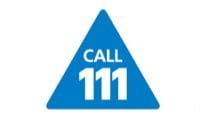Scotland has gone live with NHS 111 as the new contact number for the Scottish health advice helpline NHS 24; a year after England began its troubled launch of the service.
In a statement on the launch, the Scottish health secretary Alex Neil said the “new, free and easy to remember number for NHS 24” will make it easier for people seeking help.
“By introducing the 111 number we are removing any barrier for the public to access the health advice out of hours.This will help to ensure people have access to health information and support, including access to a GP, when they really need it," he said.
“In Scotland, the 111 number will be run by NHS 24 as a public service, in public hands – serving the needs of patients.This is in complete contrast to the approach adopted by the NHS in England, where different organisations, including private sector providers, are contracted to provide the number in different regions.”
In England, the NHS 111 service has been surrounded by problems since its launch in Easter 2013.
It also contributed to the closure of NHS Direct, which had previously provided the 0845 service, and was providing the successor service to around a third of England.
The contracts have temporarily been taken over by alternative providers, most of them ambulance services.
In January this year, the British Medical Journal published research which showed that the re-tendering of the contract would be very costly.
In the West Midlands alone, where 13 contracts are due to be re-tendered, the BMJ estimates that the re-procurement process will cost £500,000.
Although NHS England’s chief operating officer Barbara Hakin said earlier this year that NHS 111 is now stable and improving, there are still issues around the service that need to be addressed.
BBC reported last week that South West Ambulance Service NHS Foundation Trust admitted that it has “failed to deliver the performance required by NHS England and our commissioners” after nearly 900 people abandoned their calls during a one week period.
The trust’s chief executive Ken Wenman said that this was mainly due to not having enough staff on call during busy times, but that it was still unacceptable and “it presents a risk of calls being inappropriately passed to other services at peak times.”
During busy time in the Easter holidays, patients were diverted to West Midlands Ambulance Service NHS Trust as part of a contingency back-up system.
Emergency dispatch system provider Priority Dispatch has also raised concerns around ambulances being dispatched unnecessarily in some areas.
The company says there is an “inconsistent approach and lack of quality control” which is “compromising patient safety.”
Ron McDaniel, senior vice president at the Priority Dispatch said that he estimates as many as a third of ambulanced dispatched in some areas of the country “have been wrongly dispatched, wasting time resource and money on an already stretched healthcare system.”
“There is no statistical evidence to demonstrate that 111 is doing what was promised of the service, that is, reducing pressure on other emergency and urgent care services,” he said.
“In fact, it is having the opposite effect in many areas.”
In some areas, the 111 service seems to be working fine. North West Ambulance Service NHS Trust issued a statement last week, saying it had a “successful Easter” and triaged more than 12,000 calls over the weekend.
EHI reported earlier this month that NHS 24 has delayed the go-live of its new IT system intended to support call managing and triaging services ahead of the 111 deployment.
However a spokesperson from Scottish Government then told EHI the delay would not impact the switch over from its 0845 number to NHS 111.

